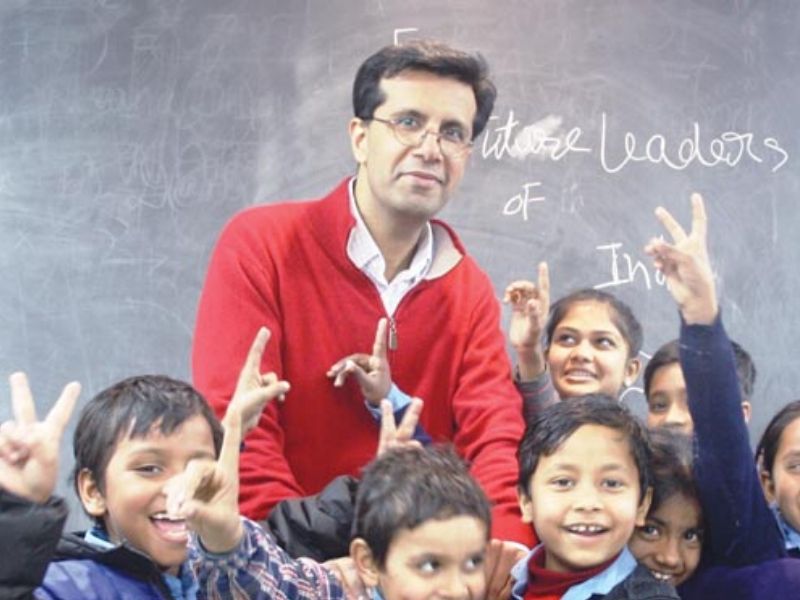50 Leaders who can revive Indian education – Ashish Dhawan
 Ashish Dhawan
Ashish Dhawan
Chairman, Central Square Foundation
An Yale and Harvard graduate, Ashish Dhawan is the founding-chairman of the Delhi-based Central Square Foundation (estb.2012), prior to which he served as a highly successful investment banker (Chrys Capital). Dhawan is also a trustee and prime mover of the crowd-funded blue-chip Ashoka University, Sonipat, (Haryana).
The Covid-19 crisis has hit government and budget private schools hard. How well are they responding to this challenge?
The current situation is very challenging for the education sector. Regardless of the type of school — government or private — there has been major disruption in education and this will hurt students’ learning outcomes and overall development.
In the short run, state governments are attempting to address this challenge, at least partially, by turning to online learning while schools are shut, and managing the logistics of board exams. Edtech allows students to access content and continue learning. The Union HRD ministry and state governments are promoting various digital initiatives such as DIKSHA, e-PATHSHALA, SWAYAM and the TopParent app to ensure that the learning process of children does not suffer. To help address the lack of high-quality vernacular content that is curriculum-aligned and free, we have created a library of 10,000 videos called TicTacLearn for maths and science in Hindi, English, Telugu, Odia and Marathi for class I-X children. Several state governments are broadcasting this video content on Doordarshan.
There could be a reduction in the Central and state education budgets, increased pressure on government schools as low-income households may switch from private to government schools, and all teachers will need to shoulder additional responsibilities of ensuring social distancing, health and nutrition.
Even online learning to which most state governments are switching, requires some basic infrastructure that many schools and households don’t have. This is likely to exacerbate inequity in K-12 education in the near term.
State governments’ fee waiver/deferment circulars to private school managements. The national lockdown has heavily impacted budget private, aka affordable/low fee schools. These schools collect fees at the end of the academic year (April), and already had pending dues from the previous year. Consequently, the lockdown has severely hit the cash flow of affordable private schools (APS), even as teaching and non-teaching staff salaries, rent and utility bills have to be paid. This forces APS to lay-off teachers or simply shut down which will seriously hurt the learning outcomes for millions of children attending APS.
Top 3 proposals for reviving and reforming the K-12 education system in India. Numerous research studies indicate that foundational learning is the only way to improve learning outcomes of in-school children. Ensuring universal foundational literacy and numeracy skills prior to completion of class III, can bridge the wide learning gaps that exist today, increase workforce participation and improve overall quality of life. The FLN (foundation, literacy and numeracy) mission of the Central government has very high potential and every effort should ensure its robust implementation by state governments. Simultaneously, there’s a lot of work to be done to unlock the true potential of edtech to seamlessly integrate conventional and online teaching-learning in classrooms as well as at home. Technology has the potential to provide all children access to quality education and also enable parental engagement. Lastly, there’s urgent need to create an enabling environment and build a scalable model for the affordable private school system where almost 50 percent of India’s school-going children study.
Future plans… The foundation’s prime objective is to ensure quality school education for all children of India. I see CSF (Central Square Foundation) playing a critical role in helping to achieve universal quality education which is the precondition of lifting a significant percentage of our population out of poverty, get jobs and lead better lives.
In the future, CSF will partner with more social impact organisations and work with governments to build scalable, sustainable and purposeful education institutions. We will also collaborate effectively with private sector, non-profit organisations and other ecosystem institutions to build research capability and develop knowledge systems.
Also read: Leaders who can revive Indian Education – Manjot Dhillon















Add comment